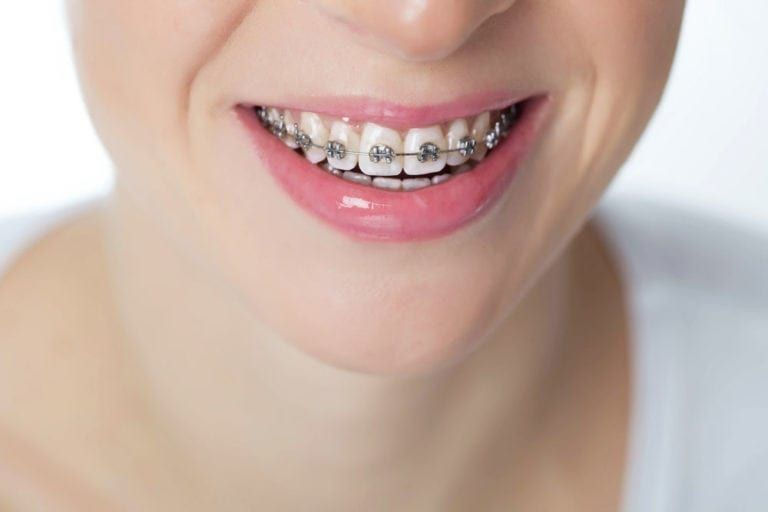Tooth Extraction 101: A Step-by-Step Guide
- dclinicdubai
- May 29, 2025
- 4 min read
Tooth extraction is a widely performed dental procedure used to address several oral health concerns, from infection to overcrowding. While many seek treatment locally, some patients are now opting for Dental Extractions in Dubai due to the city's advanced dental technology and globally trained professionals. This guide provides a step-by-step breakdown of the extraction process to help you feel informed and confident about your care journey.

Why Tooth Extraction May Be Necessary:
Tooth removal is recommended when a damaged or problematic tooth cannot be saved or is interfering with overall dental health. Common reasons include:
Severe tooth decay or infection
Advanced periodontal (gum) disease
Crowded teeth impacting orthodontic treatment
Impacted wisdom teeth causing pain or misalignment
Fractured or broken teeth beyond repair
Each of these conditions requires professional evaluation to determine whether extraction is the best solution.
Initial Consultation and Diagnosis:
The first step in the extraction process involves a comprehensive consultation with a dentist or oral surgeon. During this visit, your dental professional will:
Review your medical and dental history
Take digital X-rays or 3D scans to assess tooth and bone condition
Evaluate if a simple or surgical extraction is required
Discuss anesthesia and sedation options for your comfort
This diagnostic phase is crucial in developing a tailored treatment plan and minimizing risks.
Preparing for the Extraction:
Before the day of your extraction, your dental team will provide pre-operative instructions. Patients may be advised to:
Avoid eating or drinking for a set number of hours (especially if sedation is planned)
Stop certain medications like blood thinners temporarily (only under a doctor’s guidance)
Arrange for someone to accompany them if sedation or general anesthesia will be used
Inform the clinic of any allergies or underlying medical conditions
Proper preparation ensures the procedure goes smoothly and reduces the chance of complications.
The Extraction Procedure Explained:
Tooth extractions are categorized into two types—simple and surgical—and the steps vary accordingly:
Simple Extraction:
Local anesthesia is administered to numb the area.
The tooth is loosened using a dental elevator.
Forceps are used to gently remove the tooth from its socket.
Surgical Extraction:
Used for impacted or broken teeth.
A small incision is made in the gum.
The tooth may be sectioned (divided into parts) for easier removal.
Stitches may be placed to close the wound.
The duration of the procedure typically ranges from 20 to 60 minutes, depending on complexity.
Immediate Post-Extraction Care:
After the procedure, your dentist will provide instructions to support proper healing. Typical post-extraction care includes:
Biting down gently on gauze to stop bleeding
Applying ice packs to reduce swelling
Taking prescribed or over-the-counter pain relievers
Eating soft foods like yogurt, mashed potatoes, or soup
Avoiding smoking, alcohol, and using straws for at least 48 hours
These steps help protect the extraction site and promote blood clot formation, which is critical for healing.
Potential Complications to Watch For:
Although tooth extractions are generally safe, certain complications may arise. Be aware of the following warning signs:
Persistent bleeding beyond 24 hours
Intense pain that worsens after the first few days (may indicate dry socket)
Signs of infection such as pus, fever, or bad breath
Swelling that doesn't subside within a few days
Numbness that persists (could be a sign of nerve damage)
If any of these symptoms occur, contact your dental provider immediately for evaluation.
Recovery Timeline and Healing:
Recovery duration varies depending on the extraction type and individual health, but most patients heal within 7–10 days. Key recovery milestones include:
First 24–48 hours: Blood clot forms; swelling and discomfort are most pronounced.
Days 3–5: Pain and swelling should begin to subside; soft tissue starts to heal.
One week: Stitches (if used) may be removed; diet can start returning to normal.
Two weeks: The socket begins closing; bone and gum tissue regenerate gradually.
Following your dentist's instructions during this time is vital for avoiding setbacks.
Replacing the Missing Tooth:
After healing, replacing the extracted tooth may be necessary to maintain proper bite function and aesthetics. Common options include:
Dental Implants: Durable and natural-looking replacement anchored into the jawbone.
Bridges: Fixed prosthetics that attach to adjacent teeth.
Dentures: Removable appliances that replace one or multiple missing teeth.
Your dentist will guide you in selecting the best option based on your oral health, preferences, and budget.
Dental Extractions in Dubai:
Choosing where to undergo dental treatment is just as important as the procedure itself. Dental Extractions in Dubai offer access to state-of-the-art clinics, internationally accredited professionals, and a patient-first approach. Many clinics cater to medical tourists, providing bilingual staff, seamless scheduling, and transparent pricing. Patients seeking comfort, efficiency, and world-class care often find Dubai to be a top destination for advanced dental procedures.
What to Ask Your Dentist Before an Extraction:
Being informed before your extraction can ease anxiety and ensure a smooth experience. Consider asking:
Is this extraction absolutely necessary?
What type of anesthesia will be used?
How should I prepare before the procedure?
What are the risks and possible complications?
How long is the recovery period, and what should I expect?
Having clear answers to these questions can give you peace of mind and help you actively participate in your treatment.
Final Thoughts:
Understanding the full scope of the tooth extraction process—from diagnosis to recovery—helps you feel more in control of your dental health. Whether you're undergoing treatment locally or exploring Dental Extractions in Dubai, the key to a successful outcome lies in choosing a trusted provider and following aftercare guidance closely. With the right preparation and care, tooth extraction can be a smooth, pain-managed process that ultimately supports your long-term oral wellness.


Comments